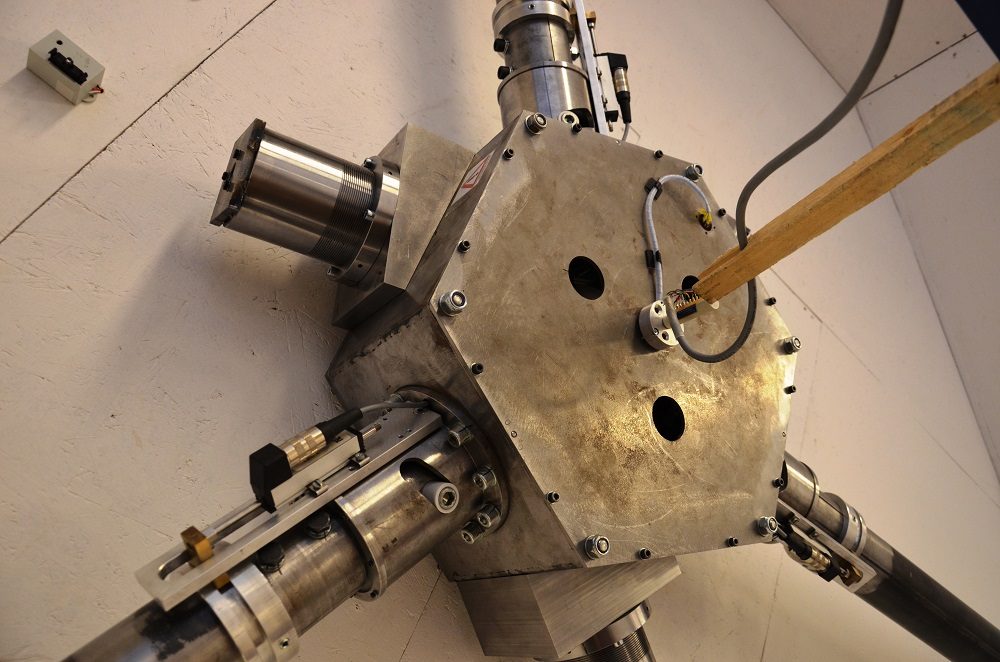Development and assembly of the Hardwar-in-the-Loop testbench PHilto examine mechanical pitch-systems for Small Wind Turbines

Project description
Project period 01.04.2011 – 30.09.2011
Small wind turbines (SWT) with a low rated power, less than 100 kW, become more and more important for a distributed energy supply. Complex mechatronic feedback control systems for pitch control are too expensive to run a SWT profitable. A mechanical solution for power control can be an advantageous solution on small turbines. The test bench PHiL allows us to examine mechanical but also electromechanical pitch-systems of SWT in an experimental way and proof the functionality of the controller. Furthermore the comparison of measurement data from the test bench with real operation data of SWT lets us appreciate the applicability of established theories for rotor blade design on small turbines.
Tasks
At the Reiner Lemoine Institute a test bench for experimental validation of pitch-systems on SWT was developed. It is driven by a variable-speed asynchronous motor and can accelerate test specimen up to a revolution speed of 400 rpm. The measurement system consists of a Bachmann SPC, position sensors to measure the pitch angles, an incremental encoder to determine the revolution speed of the motor and a laser system to validate the revolution speed of the rotor. Furthermore cameras can be mounted at the blade roots to visualize the working pitch mechanic. To control the test bench MATLAB models were written which are downloaded to the SPC. This allows us to simulate the approach flow of the real rotor following the hardware-in-the-loop principle (HiL) and to examine the behavior of the pitch-system in dependence of the preset wind speed. The observation of the tests is realized with a graphical interface at the PC. All parameters of activation and measurement are visualized and data is recorded here.